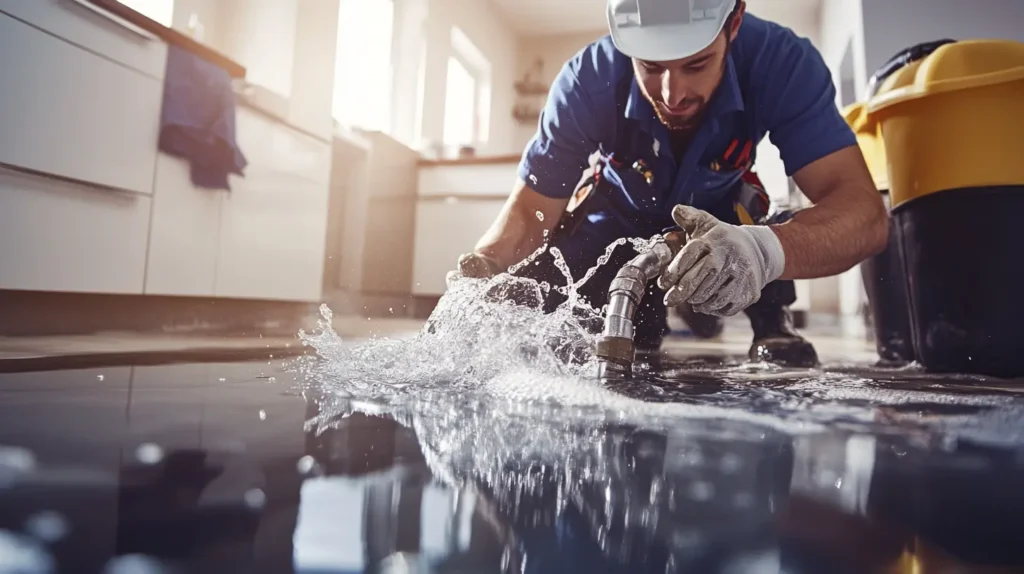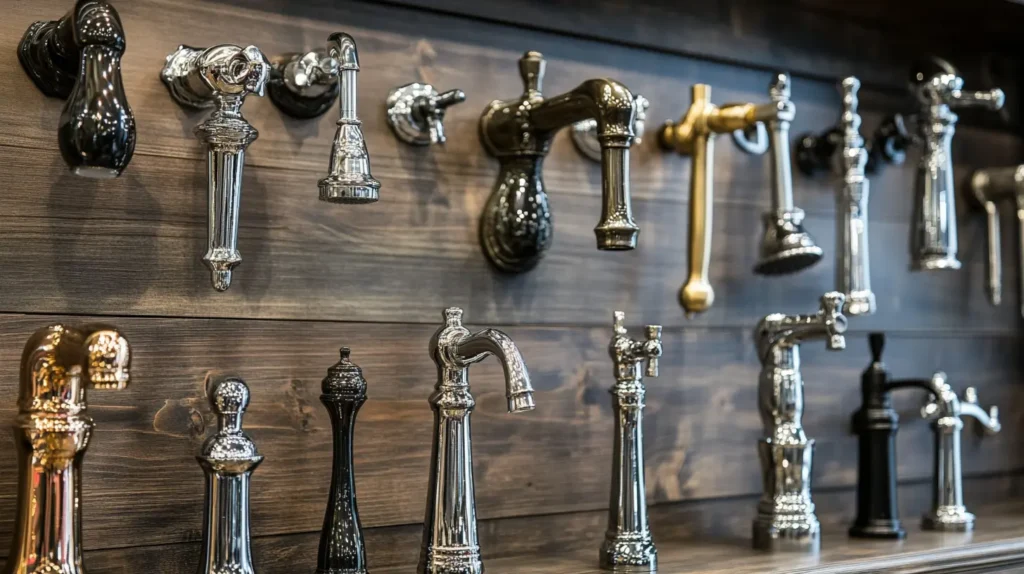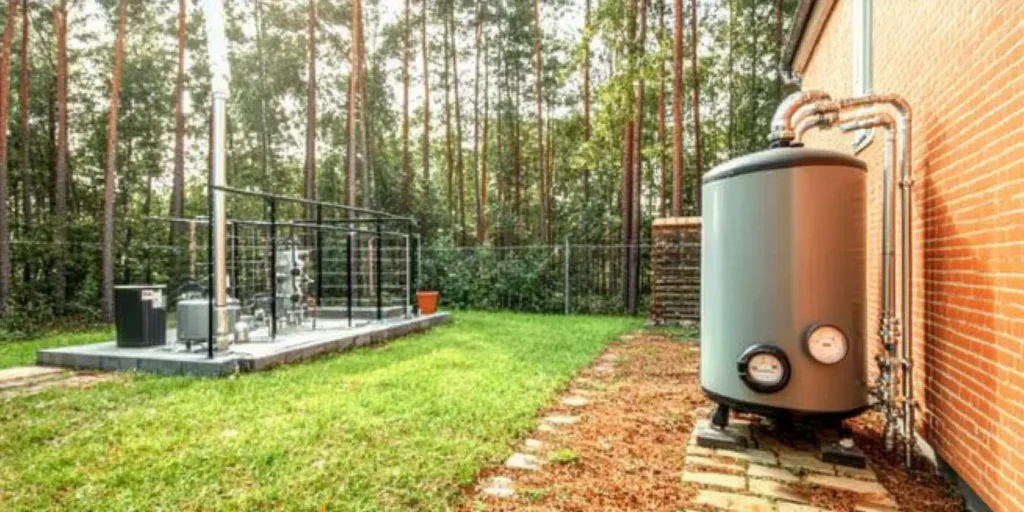Introduction (Why Your Plumbing Matters More Than You Think)
When most people think of increasing their home’s value, they usually jump straight to remodeling kitchens, sprucing up bathrooms with designer tiles, or adding a fresh coat of paint. But there’s a not-so-secret weapon in home improvements that can make a significant difference in market value, comfort, and efficiency: plumbing upgrades. As a local, family-run plumbing company serving St. John’s County, Jacksonville, St. Augustine, and surrounding areas, we’ve seen time and again how strategic plumbing renovate projects can yield remarkable returns on investment.
After all, water is one of those conveniences we take for granted until it’s gone—or causing trouble. Low water pressure, dripping faucets, or outdated piping may not only make your daily routines frustrating but can also deter potential buyers when it’s time to sell. Just imagine stepping into a home that has an outdated, rattling water heater or corroded galvanized pipes. The first reaction? “What else is old in here?” The result? Lower offers or prospective buyers walking away.
In Northeast Florida’s hot and humid environment, proper plumbing isn’t just about comfort, it’s also about safeguarding against property damage. Hidden leaks in older plumbing can quickly balloon into mold problems, wood rot, and foundation issues—every homeowner’s nightmare. In coastal areas especially, salt in the air can exacerbate rust and corrosion, adding stress to your plumbing infrastructure over time.
So, whether you’re planning to put your home on the market next month or simply interested in boosting its value for the future, taking a closer look at your plumbing system is one of the smartest steps you can take. With the right plumbing upgrades, you can enjoy modern amenities now and reap the benefits when you eventually list your home for sale. Plus, by working with local professionals who understand Florida’s specific needs, you ensure that each upgrade stands strong against the region’s unique climate challenges.
In this comprehensive guide, we’ll walk you through the best plumbing upgrades to increase your home’s value, highlight the plumbing upgrades effect on house value, and help you understand how to plumbing renovate effectively. We’ll also share a case study from our own experience here at Kingdom Based Plumbing, so you can see exactly how these upgrades can transform a home and its resale potential. Ready to dive in?
Section 1: Why Plumbing Upgrades Matter
Plumbing is often the unsung hero of a home—quietly running behind walls and under floors, delivering fresh water and carrying away waste without much fanfare. Yet, the moment there’s a leaky faucet or a burst pipe, your day can quickly go from routine to chaotic. That’s why taking a strategic look at plumbing upgrades isn’t just about fixing problems; it’s about elevating your home’s overall value, comfort, and longevity.
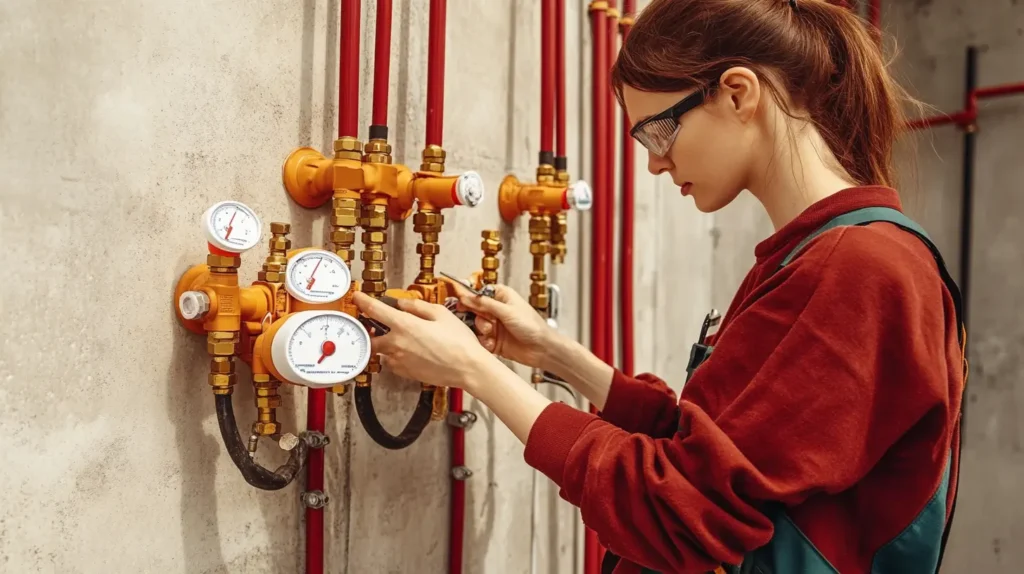
Resale Value and First Impressions
One of the biggest reasons to consider a plumbing upgrade is how it can enhance your home’s resale value. Home appraisers, lenders, and sharp-eyed buyers almost always check a property’s plumbing during their assessments. Corroded or outdated pipes, chronic leaks, and water stains can all be red flags that lower your asking price. On the other hand, upgraded piping, modern fixtures, and reliable water pressure signal to potential buyers that your property has been well cared for. This immediate reassurance often translates into stronger offers and smoother negotiations.
Boosting Efficiency and Saving Money
Modern plumbing systems aren’t just about aesthetics. From tankless water heaters that provide hot water on demand to low-flow faucets and toilets designed to conserve water, contemporary fixtures can dramatically lower your monthly utility bills. In areas like Northeast Florida, where the climate can be humid and utilities can fluctuate, every drop of water saved counts—both for the environment and your wallet. Energy-conscious buyers will appreciate that an updated home means fewer long-term expenses and less stress over surprise repairs.
Reducing Maintenance Headaches
If you’ve ever spent a weekend wrestling with a stubborn leak or calling around for emergency repairs, you understand how frustrating and costly old plumbing can be. Materials like galvanized steel or aging PVC are prone to corrosion, buildup, and cracks. By upgrading to high-quality PEX or CPVC, you minimize the likelihood of future leaks and water damage. This leads to fewer repair bills and less disruption to your daily routine. In other words, you’ll spend more time enjoying your home rather than troubleshooting its quirks.
Staying Ahead of Codes and Regulations
Building codes evolve, especially in coastal regions where weather patterns can be harsh on infrastructure. Plumbing that was acceptable a decade ago might fall short of today’s safety and efficiency standards. Upgrading ensures you’re aligned with current regulations, which is especially critical if you’re planning a major renovation or looking to sell in the near future. Skipping these updates could mean trouble during inspections, potentially derailing your remodeling dreams or slowing down the closing process when you sell.
Prioritizing Health and Safety
Outdated pipes aren’t just an eyesore; they can also pose health risks. Rust, sediment, and even lead (if your home dates back to a certain era) may leach into your water supply. Modernizing your plumbing with safer materials and adding filtration or softening systems can significantly improve water quality. Families, especially those with young children, find this benefit invaluable because it’s a proactive step toward safeguarding everyone’s health.
Factoring in Local Conditions
In humid, coastal regions like Northeast Florida, harsh environmental elements can accelerate plumbing deterioration. Salt in the air can corrode pipes more quickly, while frequent rainstorms can overtax drainage systems. A robust plumbing setup isn’t just a luxury—it’s a practical necessity to protect your home from moisture damage and to ensure consistent, reliable water flow year-round.
By investing in thoughtful plumbing upgrades today, you’re setting yourself up for a more comfortable living space, better resale prospects, and fewer maintenance surprises down the line. After all, when it comes to your home, strong and reliable plumbing is the foundation of daily convenience—and that’s something both you and future buyers will appreciate.
Section 2: Key Plumbing Upgrades That Increase Home Value
Maximizing the value of your home often involves making strategic improvements that appeal to both current needs and future buyers. When most people think of renovations, they tend to focus on areas like kitchens or master suites. However, plumbing upgrades can be just as impactful—if not more so—because they address both practical daily use and long-term investment potential. Below are some of the most worthwhile improvements to consider, especially if you want to enhance functionality, efficiency, and overall market appeal.
2.1 Replacing Old Pipes
What’s the Problem?
Older homes frequently contain galvanized steel or cast iron pipes. While these materials were standard decades ago, they’re now known for their tendency to corrode and accumulate mineral buildup. Over time, this can lead to steadily decreasing water pressure, odd discoloration in your water, or persistent leaks that can damage walls, floors, or even the foundation.
The Upgrade
Modernizing your piping with materials like PEX (Cross-linked polyethylene) or CPVC (Chlorinated Polyvinyl Chloride) offers a range of benefits. These newer options are highly resistant to corrosion, more flexible for easier installation, and typically come with longer lifespans. Homeowners who opt for a systematic repipe often see an immediate improvement in water flow and a decrease in plumbing-related headaches.
Why It Boosts Value
Buyers are especially wary of aging infrastructure, so upgraded pipes provide peace of mind. When potential buyers learn that old galvanized or cast iron pipes have already been replaced, they perceive the home as better-maintained overall. This confidence can translate into stronger offers and fewer requests for seller concessions during the closing process.
2.2 Installing a Tankless Water Heater
What’s the Problem?
Traditional, tank-based water heaters continuously heat and store large volumes of water, whether or not you’re using it. This not only consumes unnecessary energy but also poses a risk of catastrophic leaks if the tank fails. In a busy household, there’s also the all-too-familiar scenario of running out of hot water right when you need it most.
The Upgrade
Tankless water heaters address these issues by heating water on demand. When you turn on the faucet, water is quickly brought to the desired temperature without the need for a storage tank. By eliminating the constant energy draw of reheating water, you’ll see savings on your utility bill. Furthermore, these units are compact, freeing up valuable space in your garage or utility area.
Why It Boosts Value
Homebuyers today are attuned to energy efficiency and sustainability. A tankless water heater can be a compelling selling point, demonstrating that your home is both modern and eco-friendly. Additionally, the reduced risk of large-scale leaks helps protect your home’s interior, minimizing the likelihood of expensive water-damage repairs down the road.
2.3 Upgrading Fixtures and Faucets
What’s the Problem?
Fixtures such as faucets, showerheads, and toilets can wear down or become outdated over the years. Water stains, constant drips, or archaic designs can leave a negative impression. A dripping faucet isn’t merely annoying; it also wastes water, which can drive up your utility bills and harm the environment.
The Upgrade
Swapping old fixtures for modern, water-efficient versions can revitalize your home’s look and function in one fell swoop. Many contemporary faucets and showerheads are designed to reduce water consumption without compromising on pressure, while updated toilets can use significantly less water per flush. This upgrade is often quick, cost-effective, and immediately noticeable.
Why It Boosts Value
Home shoppers love to see well-maintained details. Shiny, stylish fixtures signal that the home has been cared for, and they also appeal to those conscious of monthly expenses and environmental impact. These small changes can collectively create a big impact, making your home feel fresh and turnkey from the moment buyers walk through the door.
2.4 Adding a Water Filtration or Softening System
What’s the Problem?
Hard water is a common challenge in many Florida regions, causing buildup on appliances and reducing their efficiency. It can also leave laundry feeling stiff and dull the finish on your sinks or tubs. In some areas, the water may contain higher levels of minerals or other compounds that negatively affect taste and quality.
The Upgrade
A whole-house water filtration or softening system tackles these issues at their source. By filtering out minerals, chlorine, and other contaminants, these systems can greatly enhance the quality of your water. You’ll likely notice softer laundry, appliances that last longer, and a cleaner taste for drinking and cooking.
Why It Boosts Value
When prospective buyers see that your home includes built-in water purification, it stands out as both a convenience and a health benefit. Families appreciate the ability to drink straight from the tap without worry, and many are willing to pay more for homes that come equipped with these amenities. Plus, fewer issues with scale buildup will help maintain other systems—like dishwashers and washing machines—in better shape over time.
By prioritizing these plumbing renovate options, you can significantly enhance your home’s comfort, efficiency, and market value. Whether you’re planning to stay put for years or looking to sell in the near future, modern plumbing is an investment that pays dividends in both daily convenience and future resale appeal.
Section 3: The Local Advantage – Kingdom Based Plumbing’s Approach
When it comes to upgrading your plumbing in Northeast Florida, having a team that understands the region’s unique environmental challenges can make all the difference. At Kingdom Based Plumbing, we’re not just another plumbing service; we’re a family-run company that has spent years working in St. John’s County, Jacksonville, St. Augustine, and beyond. Throughout that time, we’ve learned that dealing with high humidity, frequent rainstorms, and salty coastal air requires a specialized approach—one that prioritizes long-term durability as well as immediate solutions.

3.1 Our Local Expertise
Humidity in our area can accelerate corrosion, especially in older pipes or fixtures made from materials that aren’t designed to handle constant exposure to moisture. In coastal communities like St. Augustine Beach, salt-laden air can speed up rust on metal pipes, causing them to fail much sooner than they would in drier climates. Meanwhile, heavy rainfall can overwhelm poorly designed drainage systems, leading to leaks and potential flooding risks if the plumbing isn’t up to par.
Rather than taking a one-size-fits-all approach, we tailor our recommendations to the specific conditions that a home or business might face. If you live close to the coast, we might suggest more corrosion-resistant materials like PEX tubing or CPVC. For properties that regularly contend with flooding or heavy downpours, we emphasize the importance of robust drainage solutions and backflow prevention to keep water where it belongs. Our strategy is to think about how your chosen upgrades will hold up not just next year, but 5, 10, or even 20 years from now, ensuring your investment stands the test of time.
We also stay abreast of local building codes and permit requirements, which can vary from one municipality to the next. Whether you need a permit for a large-scale repipe or want to install a new tankless water heater, we’ll guide you through the paperwork and inspections to keep your project on track and code-compliant. After all, avoiding costly re-dos and last-minute surprises is just as important as achieving top-notch workmanship.
3.2 Case Study: From Leak-Prone to Turn-Key
One of our most illustrative projects involved a homeowner in St. Augustine who purchased a charming 1970s fixer-upper near the ocean. Although the property exuded plenty of vintage appeal, the plumbing told a different story. Corroded galvanized steel pipes led to constant leaks, discolored water, and weak water pressure. The homeowner worried that these issues would not only disrupt daily life but also drag down the overall property value.
Inspection and Assessment
Our first step was to conduct a thorough inspection, during which we confirmed the extent of the corrosion and identified a severely rusted water heater. We also found that fixtures in the bathrooms and kitchen were outdated and inefficient, contributing to higher-than-necessary utility costs.
Strategic Planning
After discussing the homeowner’s budget and long-term goals, we proposed a full repipe using PEX tubing, chosen for its flexibility and resilience against both corrosion and temperature fluctuations. We also recommended a tankless water heater to eliminate the risk of a catastrophic tank failure and to offer on-demand hot water for the family of five.
Efficient Execution
Our team replaced the old pipes, taking care to optimize the layout for improved flow and reduced leaks. We installed the tankless water heater in a space-saving location, then upgraded the faucets, showerheads, and toilets to modern, water-efficient models.
Testing and Optimization
Before concluding the project, we checked water pressure throughout the home and confirmed that all new equipment met local codes. We walked the homeowner through each upgrade, ensuring they knew how to operate and maintain their new fixtures.
The Results
- Improved Home Value: A post-renovation appraisal noted a significant increase in value—nearly 15%—largely attributed to the updated plumbing and energy-efficient water heater.
- Lower Monthly Bills: With the tankless heater and water-saving fixtures, the homeowner saw an immediate reduction in utility costs.
- Peace of Mind: Gone were the frequent leaks and rusty water. In their place, the homeowner enjoyed consistent water pressure and the security of knowing their plumbing was built to last.
This case study underscores the power of locally informed expertise. By understanding the coastal climate, local regulations, and modern plumbing technology, we were able to transform a leak-prone, inefficient system into a reliable, high-value asset. Whether you’re dealing with a historic home in St. Augustine or a newer build in Jacksonville, having a team that recognizes Northeast Florida’s distinct challenges can make all the difference in your next plumbing project.
Section 4: The Financial Sense of Plumbing Renovations
When homeowners think about the costs of plumbing renovations, it’s natural to focus on the initial price tag for materials and labor. However, it’s crucial to look beyond those immediate expenses and recognize the substantial long-term financial advantages that modern plumbing systems can bring. In fact, comprehensive upgrades to your pipes, fixtures, and water-heating solutions can transform your home’s overall value, reduce day-to-day expenses, and offer a competitive edge in the real estate market—particularly in regions like Northeast Florida, where environmental factors can be tough on outdated plumbing.
Higher Appraisal Values and Refinancing Opportunities
Many lenders and buyers now emphasize the importance of an updated plumbing system. During the appraisal process, inspectors don’t just look for cosmetic issues; they also check for structural integrity and signs of water damage or pipe corrosion. If your home has galvanized steel pipes that are decades old, or if your water heater shows signs of rust, an appraiser may assign a lower value. By upgrading to modern materials such as PEX or CPVC and installing energy-efficient systems like tankless water heaters, you can see a noticeable uptick in your home’s appraised value. This advantage can be especially beneficial if you’re looking to refinance, as a higher appraisal generally translates into better loan terms and more flexibility in tapping into your home’s equity.
Reduced Repair and Maintenance Costs
Older plumbing is notoriously prone to leaks, clogs, and corrosion. While a single small leak might be inexpensive to fix, multiple recurring issues can add up quickly. In some cases, an emergency burst pipe can lead to thousands of dollars in water damage, plus the potential costs of mold remediation. By replacing aging infrastructure proactively, you eliminate many of these high-risk scenarios. Materials like PEX are designed to resist corrosion, extreme temperatures, and mineral buildup, meaning you’ll spend less time worrying about surprise repairs and more time enjoying your home.
Energy and Water Savings
In a hot and humid environment, utility bills are already a major concern for most households. Inefficient faucets, showerheads, and water heaters can dramatically raise both energy and water usage. Upgrades such as low-flow fixtures and tankless water heaters tackle these inefficiencies head-on. Tankless systems only heat water on demand, which can reduce your monthly energy costs. Low-flow faucets and dual-flush toilets help conserve water without sacrificing performance. Over time, these savings can accumulate and effectively offset a significant portion of your initial renovation expenses.
Strong Return on Investment at Resale
For prospective buyers, a home with up-to-date plumbing is a major draw. Not only do they appreciate the reduced likelihood of sudden repairs, but they also recognize the cost savings associated with modern, efficient systems. This can translate into more competitive offers and a higher overall selling price. In markets like Northeast Florida, where frequent rain and coastal conditions can be particularly challenging on infrastructure, demonstrating that your home is prepared to handle these elements can make an immediate positive impression on buyers.
A Forward-Thinking Perspective
Ultimately, plumbing renovations aren’t just about fixing current problems or addressing urgent leaks. They’re an investment in the long-term health and value of your home. By planning ahead—opting for high-quality materials, installing energy-efficient appliances, and maintaining everything properly—you create a living space that’s more comfortable, more resilient, and more attractive to future buyers. In a region where environmental pressures can expose weaknesses in older systems, it pays to stay ahead of the curve. When you weigh the cost of periodic repairs against the financial and aesthetic benefits of a full or partial upgrade, the numbers often favor taking action sooner rather than later.
Section 5: DIY vs. Professional Upgrades
One of the most common questions we encounter is, “Can I handle these plumbing upgrades on my own?” Understandably, homeowners may want to save on labor costs or simply enjoy the challenge of a do-it-yourself project. While there are certain tasks that are relatively straightforward—such as swapping out a showerhead or replacing a worn faucet—more extensive plumbing renovations can be complex and laden with potential pitfalls. Here in Northeast Florida, where specific codes, permits, and environmental conditions come into play, the stakes are even higher. In many cases, tapping into the expertise of a licensed professional isn’t just a recommendation; it’s a necessity to ensure the job is done safely, efficiently, and in compliance with local regulations.
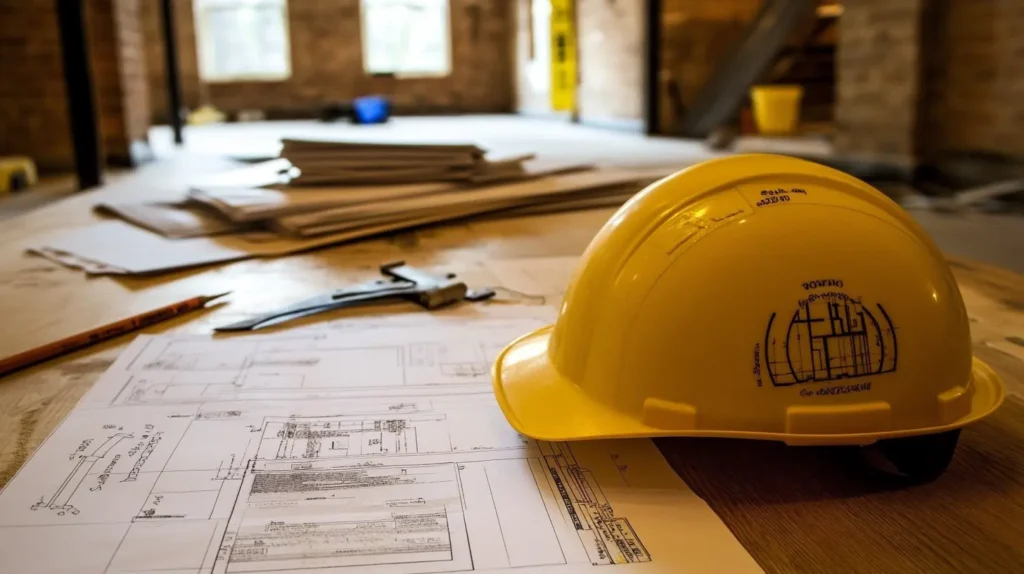
Navigating Local Codes and Permits
One of the first hurdles in major plumbing renovations is meeting local building codes. Municipalities in areas like St. John’s County or Jacksonville often have strict guidelines governing what kinds of materials can be used, how drainage lines must be configured, and whether a permit is required for certain projects. Upgrades that might seem simple—like installing a tankless water heater or repiping a bathroom—could require formal approval from city or county authorities. A seasoned plumber will understand these codes inside and out, take care of the necessary paperwork, and ensure that each aspect of your upgrade passes inspection. Going it alone, on the other hand, can mean facing costly fines or having to redo the work if it fails to meet local standards.
Addressing Safety Concerns
Plumbing isn’t just about water flow; it often intersects with gas lines, electrical wiring, and even structural elements within your home. For instance, installing a gas-powered tankless water heater demands a precise understanding of both plumbing and gas supply lines to prevent dangerous leaks or carbon monoxide issues. Similarly, miscalculating pipe angles can lead to poor drainage, backups, or bursts under high pressure. A licensed professional has undergone extensive training in not only how to install or replace components but also how to prevent catastrophes. While replacing a faucet can be a safe DIY project, tampering with extensive piping or connecting appliances that require specialized hookups is often best left to those who work in the field every day.
Precision in Installation
Another significant advantage of hiring a professional is the precision they bring to each job. Determining the correct size for a tankless water heater, for instance, isn’t just a matter of reading the box label—it involves understanding flow rates, the number of occupants in the home, and even local water conditions. Similarly, selecting the best pipe diameters and materials may require in-depth knowledge of industry standards, water pressure variables, and projected household demand. This level of detailed planning helps avoid common issues like inadequate hot water supply or inconsistent water pressure, ensuring that you get the most out of your upgrade.
Warranties and Guarantees
Most reputable plumbing companies, including Kingdom Based Plumbing, back their work with warranties or service guarantees. This means if something goes wrong shortly after installation—such as a fixture malfunctioning or a pipe connection loosening—you won’t be stuck with the repair bill. Similarly, many manufacturers require professional installation for product warranties to remain valid. Even if you’re capable of physically installing a new water heater or filtration system on your own, you could inadvertently void the manufacturer’s coverage if you’re not a licensed contractor. By bringing in an expert, you protect your investment and ensure you have recourse if the unexpected occurs.
Finding the Right Balance
None of this is to say that all DIY efforts are misguided. Simple tasks like changing a showerhead, unclogging a drain, or replacing a faucet can be enjoyable weekend projects that help you learn new skills and take pride in maintaining your home. However, when it comes to more ambitious ventures—especially those involving pipe replacement, structural changes, or potential safety hazards—entrusting the job to seasoned professionals is the safest, most cost-effective option in the long run. Not only will you have peace of mind knowing the job is done correctly, but you’ll also sidestep the common headaches and hazards that can derail a do-it-yourself approach.
Ultimately, smart homeowners recognize that expertise pays dividends in terms of both safety and long-lasting results. By partnering with a trusted local plumber, you ensure that your project meets current codes, is installed with precision, and remains protected under warranties. This approach not only preserves your home’s value but also makes the most of your renovation dollars, transforming plumbing upgrades from a daunting challenge into a stress-free improvement.
Section 6: Planning and Budgeting for Plumbing Upgrades
When it comes to improving your home’s plumbing system, the financial aspect often looms large. After all, even modest plumbing renovations can come with significant upfront costs, from labor and materials to potential permit fees. However, if approached strategically, these investments can yield both immediate and long-term benefits—improved water efficiency, fewer emergency repairs, and an increase in property value. Below is an in-depth guide on how to plan and budget for your plumbing upgrades in a way that maximizes your return on investment while keeping financial stress to a minimum.
1. Conduct a Comprehensive Inspection
Before setting a budget or scheduling any work, the first step is a thorough inspection. Hiring a qualified plumber to examine your existing setup can reveal potential trouble spots—such as small leaks, deteriorating pipes, or outdated fixtures. Once you know exactly what issues you’re dealing with, you can prioritize each task based on urgency, potential cost, and the value it adds to your home. This evaluation helps prevent surprise expenses midway through the project and ensures you’re not wasting money on areas that are functioning just fine.
2. Gather Multiple Quotes
Even if you already have a trusted plumbing company in mind, it’s still wise to request estimates from more than one source. Different contractors may suggest unique approaches, and pricing structures can vary widely. Pay close attention to what each quote includes, such as materials, labor, permits, and any additional fees. If a quote seems unusually low, it may be missing critical elements, or the contractor might be using cheaper materials that could lead to higher costs later. A fair, comprehensive quote is typically the best indicator of quality work.
3. Consider Phased Upgrades
If you’ve discovered that your home requires extensive work—perhaps a full repipe plus fixture replacements—tackling it all at once can be overwhelming and financially daunting. In such cases, phasing the project can be a smart compromise. Address the most urgent tasks immediately, such as replacing failing pipes or fixing leaks, and then schedule less critical enhancements for later. This staggered approach can help you manage costs and still move forward with a plan that keeps your home’s plumbing on track for a complete modernization.
4. Look Into Financing Options
Large-scale projects, like installing a tankless water heater or repiping an entire home, can strain even a well-prepared budget. Fortunately, many reputable plumbing companies offer payment plans or financing. You can also investigate home equity loans or lines of credit, which may provide favorable interest rates if the renovation is likely to boost your property’s value. By spreading the expense over time, you can avoid depleting your savings all at once and maintain financial flexibility for other potential home improvements.
5. Don’t Forget the Little Things
While big-ticket items often steal the spotlight, small upgrades can also make a substantial impact. For instance, installing low-flow toilets, high-efficiency showerheads, or under-sink water filters can improve water quality and reduce monthly bills without a massive initial outlay. These incremental changes can be integrated into your budget more easily and still produce noticeable returns, particularly if you add them all up over time.
Balancing Cost and Long-Term Value
Ultimately, spending money on plumbing upgrades should be seen as an investment rather than a mere expense. By choosing durable, modern materials and energy-efficient fixtures, you can save on water and energy costs from the moment they’re installed. Equally important, well-maintained and updated plumbing systems often command higher resale value. Prospective buyers are far more confident when they see evidence of recent, quality renovations that promise fewer hassles down the road.
Whether you decide to tackle major overhauls or opt for phased improvements, a thoughtful approach to budgeting will help you protect your financial interests and enhance your home. By taking the time to plan carefully—conducting inspections, gathering multiple quotes, and considering financing—you’ll position yourself to make the most of each dollar spent, ensuring that your upgraded plumbing stands the test of time and serves as a valuable asset to your property.
Section 7: How Kingdom Based Plumbing Can Help
Choosing a plumbing contractor can sometimes feel like navigating a maze of unfamiliar terms, varying quotes, and uncertain guarantees. At Kingdom Based Plumbing, we aim to remove that complexity by offering a personalized, community-focused approach to every job. As a family-run business deeply rooted in Northeast Florida, our reputation is built on trust, quality workmanship, and unwavering commitment to the region’s unique needs. Whether you’re located in the historic neighborhoods of St. Augustine, the bustling cityscape of Jacksonville, or the quieter communities in between, our team is here to ensure your plumbing system remains a source of comfort—not stress.
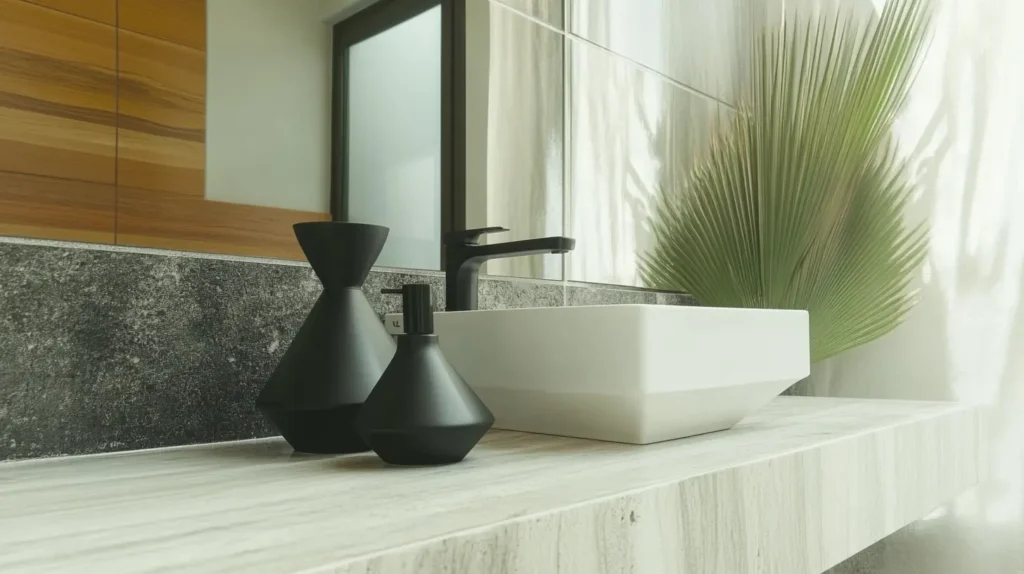
Community-Driven Approach
What truly sets us apart is our community-driven mindset. Being part of the same neighborhoods we serve means we have a vested interest in maintaining high standards and forging strong relationships. When you call Kingdom Based Plumbing, you’re not just hiring a service provider; you’re partnering with neighbors who genuinely care about the well-being of local families and businesses. We take the time to understand your specific concerns—whether that’s tackling salt-air corrosion near the coast or addressing water pressure issues in inland communities—to create customized solutions that stand the test of time.
Expert Assessments and Customized Plans
No two homes are alike, and neither are their plumbing challenges. Instead of offering cookie-cutter fixes, our experienced plumbers conduct detailed assessments to pinpoint the exact nature of your home’s plumbing system. If we notice corroded pipes, outdated fixtures, or an overworked water heater, we’ll recommend upgrades that align with your budget, your timeline, and your future plans for the property. This personalized approach ensures you’re investing in solutions that genuinely improve your home’s functionality and value, rather than unnecessary add-ons.
Timely, Efficient Service
We recognize how disruptive plumbing projects can be to your daily routine. That’s why our scheduling and project management processes are designed for speed and efficiency. From the moment you book an appointment, we coordinate our resources to minimize any downtime. Our team communicates clearly, so you’re never left wondering about the status of your project. Whether it’s a full repipe or a minor fixture replacement, we strive to complete the work on time and with minimal disruption to your household.
Quality Materials and Proven Techniques
While labor is crucial, the materials we use are equally important in determining how well your system will hold up. At Kingdom Based Plumbing, we insist on sourcing tried-and-tested brands known for their durability and compliance with industry standards. From advanced PEX piping that resists corrosion to high-efficiency fixtures designed to save water, we make certain that each component contributes to long-lasting performance. This meticulous attention to materials means you won’t have to worry about frequent replacements or hidden weaknesses down the road.
Transparent and Fair Pricing
Financial surprises are the last thing any homeowner needs when undertaking a plumbing project. Our pricing model is designed to be transparent, breaking down each cost—labor, materials, and any additional fees—so you know exactly where every dollar goes. If a new requirement arises mid-project, we consult with you immediately, ensuring that no work proceeds without your clear approval. This open communication helps build trust and allows you to make informed decisions about your home’s upgrades.
Why Your Plumbing Matters
Think of your home’s plumbing system as its circulatory system. When it’s healthy and efficient, everything else runs smoothly—daily tasks like showering, washing dishes, or doing laundry become effortless. However, when plumbing issues arise, they can quickly spiral into larger problems that affect comfort, safety, and even resale value. At Kingdom Based Plumbing, we’re passionate about ensuring your home remains a sanctuary where you can relax, knowing that the fixtures behind the walls are robust and dependable.
By choosing us, you gain more than a service—you gain a partner committed to the long-term well-being of your home. Our goal is to address your immediate plumbing concerns while also future-proofing your system against the unique challenges posed by Florida’s environment. When it comes to something as essential as your home’s water supply, you deserve the confidence that only dedicated local experts can provide.
Conclusion – Make the Smart Choice for Your Home
Upgrading your plumbing is much more than just stopping leaks or updating fixtures—it’s an investment in your home’s functionality, safety, and value. Modern piping, efficient water heaters, updated fixtures, and filtration systems all come together to create a more appealing property for both current enjoyment and future resale. If you’ve been weighing the decision to tackle any plumbing renovate projects, consider the substantial advantages you stand to gain:
- Enhanced Home Value: A well-maintained, up-to-date plumbing system can boost your home’s appraisal value and help you command a higher selling price.
- Improved Livability: From better water pressure to reduced energy costs, you’ll benefit from a more comfortable daily routine.
- Long-Term Savings: Less water waste, fewer emergency repairs, and potentially lower insurance premiums are just a few of the perks.
- Peace of Mind: Above all, knowing you have a reliable plumbing system provides a sense of security.
Northeast Florida homeowners have a unique environment to contend with—moisture, salt air, and rapidly changing weather. That’s why professional guidance and tailored solutions are so essential. With the right plan and expert execution, plumbing upgrades can offer some of the highest returns on investment you’ll find in home improvement projects.
If you’re ready to explore your options, or if you just want a second opinion on your current system, give Kingdom Based Plumbing a call. Our family-run team is here to serve St. John’s County, Jacksonville, St. Augustine, and all the communities in between, ensuring you have a hassle-free experience from the first inspection to the final turn of the faucet.
Common Questions About Plumbing Upgrades
Below are some of the most frequently asked questions we get, along with in-depth answers to guide you in your journey to improving your home’s plumbing.
1) Do you need to test pressure when upgrading plumbing line?
Absolutely. Testing pressure is a critical step whenever you’re doing a major upgrade or plumbing renovate project, especially if you’re replacing pipes or adding new fixtures. Here’s why:
- Leak Detection: Pressure testing will immediately show if there are any leaks or loose connections in the newly installed plumbing. Even a minor leak can lead to bigger issues like mold, mildew, and structural damage if left unchecked.
- System Integrity: By applying a standardized level of pressure to the pipes, plumbers can confirm that the materials and fittings can handle daily usage (and occasionally above-average demands).
- Code Compliance: In many jurisdictions, including areas around Jacksonville and St. John’s County, local building codes require a pressure test for certain kinds of plumbing work. A successful test is often mandatory before a project can pass final inspection.
- Warranty Validation: Some manufacturers and plumbing contractors require that a pressure test be performed to validate warranties. This ensures everyone’s on the same page about the system’s integrity from day one.
In practice, your plumber will shut off or isolate the portion of the plumbing being tested, use a gauge to measure the water pressure (or air pressure, in some cases), and monitor it for a specific duration to see if there’s any drop. If the pressure holds steady, you have a leak-free system ready to go.
2) When to upgrade plumbing?
Deciding when to upgrade plumbing can be a bit tricky, but there are some telltale signs and life-stage considerations to keep in mind:
- Persistent Leaks: If you find yourself calling a plumber every few months, those repair bills can quickly add up. Upgrading your system once and for all often becomes the more cost-effective choice.
- Age of the Home: Homes built before the 1980s may have galvanized or cast iron pipes, which are prone to corrosion. If your home is several decades old and still has its original piping, it’s wise to at least have a thorough inspection.
- Low Water Pressure: Corroded or clogged pipes can reduce water flow. If cleaning or minor repairs no longer help, a repipe or other significant upgrade could be in order.
- Unusual Water Color or Taste: Rusty or discolored water often indicates corrosion in the pipes. A persistent odd taste could also mean it’s time to consider a water filtration or softening system.
- Before Major Renovations: If you’re planning a kitchen or bathroom remodel, it makes sense to upgrade the plumbing while the walls are already open. This saves on labor costs and ensures the plumbing can handle the increased demands of new fixtures or appliances.
- Resale Preparations: If you’re aiming to list your property, updated plumbing can serve as a strong selling point. This investment can pay off in a higher sale price and fewer negotiation hurdles.
In essence, it’s better to be proactive. Holding off on critical plumbing upgrades could result in emergencies, water damage, and even lowered property value over time.
3) Where to get plumbing upgrade parts?
The quest for quality plumbing upgrades begins with selecting reliable parts and fixtures. Here are a few places and considerations:
- Local Hardware Stores: Chains like Lowe’s or Home Depot carry a wide array of fixtures, pipes, and plumbing accessories. These stores are convenient and often have competitive pricing. However, be sure to check the quality and brand reputation, especially for more significant items like water heaters.
- Specialty Plumbing Supply Shops: For more specialized or high-end fixtures, local plumbing supply stores can offer better quality and a deeper selection of professional-grade products. The staff at these specialty stores often have in-depth knowledge of the products, helping you choose the right items for your home’s needs.
- Online Retailers: Websites like Build.com, Ferguson, and even Amazon have extensive catalogs of plumbing fixtures. This option is convenient but be mindful of shipping costs, return policies, and compatibility issues.
- Directly Through Your Contractor: When working with a professional plumbing company like Kingdom Based Plumbing, you can often source parts through them. Contractors typically have relationships with suppliers, sometimes leading to better pricing, longer warranties, or exclusive product lines not readily available to the public.
- Salvage Yards or Reuse Centers (For Vintage Projects): If you’re looking to maintain a certain historic or vintage aesthetic, salvage yards can be a treasure trove for unique fixtures. Just be sure to inspect items thoroughly for damage or wear.
Quality should be your top priority. Even the most skilled installation won’t hold up if the materials themselves are subpar. Look for products from reputable manufacturers with solid warranties and proven track records, especially when investing in larger items like a water heater or filtration system.

